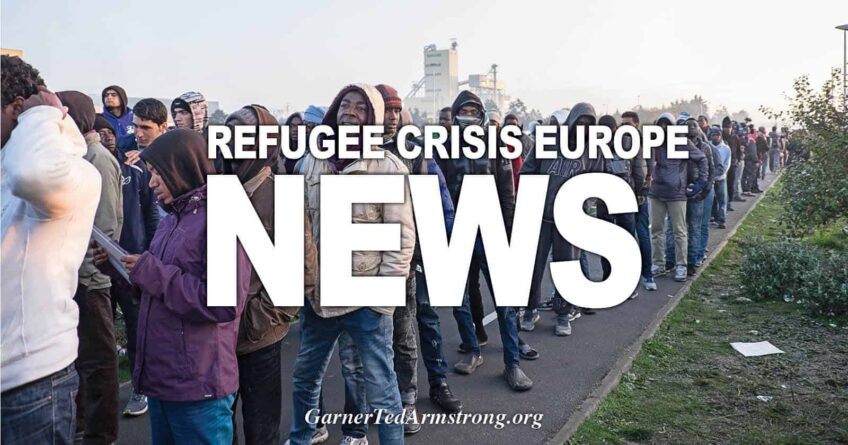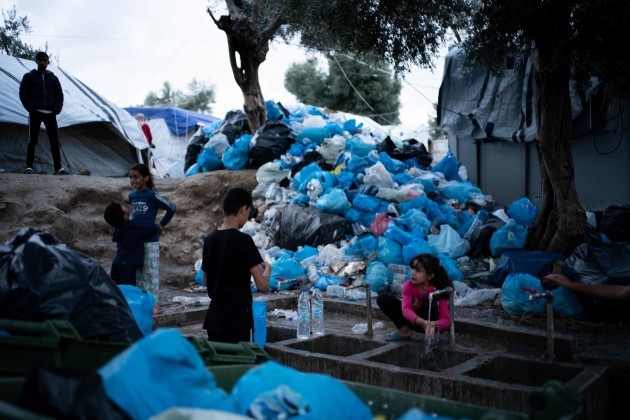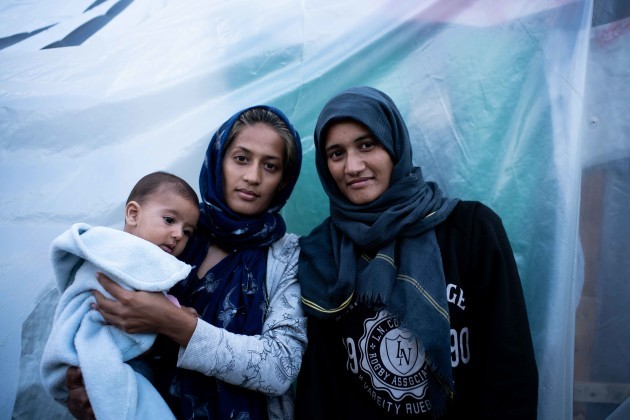Freya Mergler says the odds are against the people in camps there.

Freya Mergler
IN THE MIDST of the anxiety and tragedy of the coronavirus, it’s been so heartening to see people coming together to help their fellow humans. But this outpouring of kindness cannot stop with our friends and neighbors.
On the shores of Europe, some of the world’s most vulnerable people are waiting anxiously. Having fled war, having left their homes, tens of thousands of refugees on the Greek islands live in unimaginable conditions. These overcrowded camps lack the most basic shelter and hygiene.
COVID-19 hasn’t taken hold here yet, but if it does, it will be devastating.
Through my work with the charity Help Refugees, I see first-hand the crushing conditions faced by refugees on these islands. Long before any of us had heard of COVID-19, people here already faced destitution, illness and heavy restrictions on movement. They already faced the heartbreak of being unable to see their loved ones. Now, these islands are on the brink of something far worse.
‘Social distancing is impossible’
As rules to prevent and slow the spread of COVID-19 rapidly become second nature for many of us, in these island refugee camps, they are quite literally an impossibility. One example sums this up for me. It’s from Moria camp on Lesvos. While the rest of Greece has brought in strict rules about isolation, here over 1,300 people are forced to share a single water tap.
In Moria, more than 20,000 people live in a space designed to hold 3,000. Families live packed together in makeshift shelters of only a few square meters. Hundreds of people share the same toilet. Each day, over 10,000 people simply have no choice but to join a tightly-packed queue for food or go hungry.
Volunteer-run community centers, the backbone of the support many refugees receive, have been forced to close. These centers provide everything from showers to hot cups of tea. They are a chance to have a solid floor under your feet, instead of wet mud. A chance to charge your phone. While we might make staying in touch online for granted during our shutdown, people here face dead batteries and no way of staying in contact with loved ones at this extremely worrying time.
Working together
In the face of these unimaginable challenges, our team has been supporting courageous camp residents, locals and international volunteers who are stepping up to help. One group, unable to get protective masks, managed to find surgical fabric and a team of refugees came together to sew thousands of their own.
With 37,000 people on the island of Samos, including 7000 refugees, but only six ICU beds, another group of volunteers has been buying extra supplies for the island’s hospital, including a portable ventilator.
Powered by the hard work and generosity of ordinary people, volunteers are distributing hundreds of thousands of bars of soap. They’re fixing broken taps and toilets in camps. They’re even building emergency shelters to try to isolate the sick.
As one of the largest funders of small-scale and community-led refugee projects in Europe, Help Refugees was founded on the idea that ordinary people have the power to step up and help their fellow humans. And for me, the kindness, compassion, and solidarity shown during this crisis have demonstrated shared humanity that goes beyond race and religion, and that crosses walls and borders.
My plea is that we now turn the kindness we’ve seen in our neighborhoods towards these Greek island camps. Having fled for their lives, people here now face a choice between hunger or contracting a virus they have no means to fight.
We are currently running an emergency fundraiser to support the heroic work of refugees and volunteers on the islands. Please, spare a thought for the people trapped here.
Freya Mergler is a Field Manager for Choose Love / Help Refugees in Greece. You can contribute to the Greek Island Coronavirus Emergency Appeal here.
Source: https://www.thejournal.ie/readme/moira-camp-coronavirus-5079086-Apr2020/
[Disclaimer]










